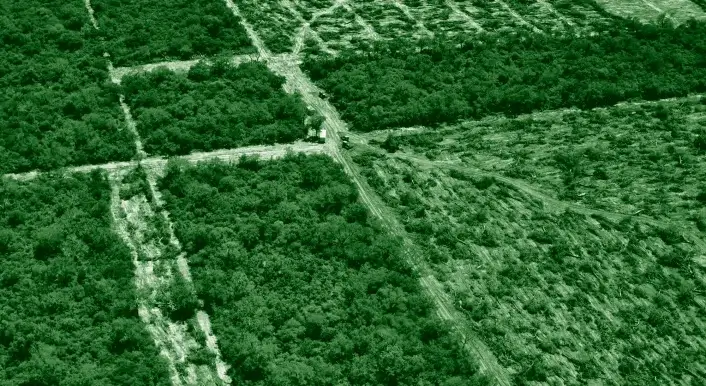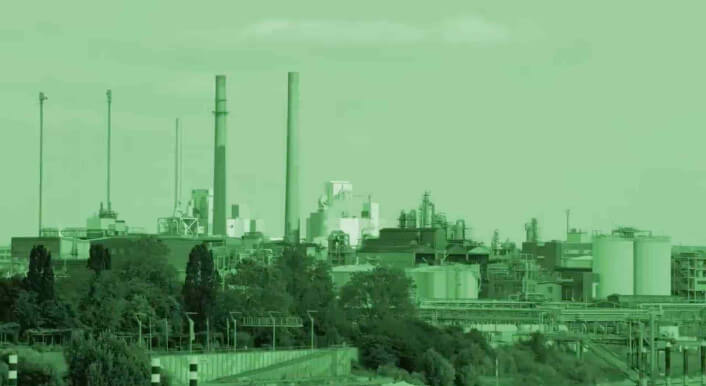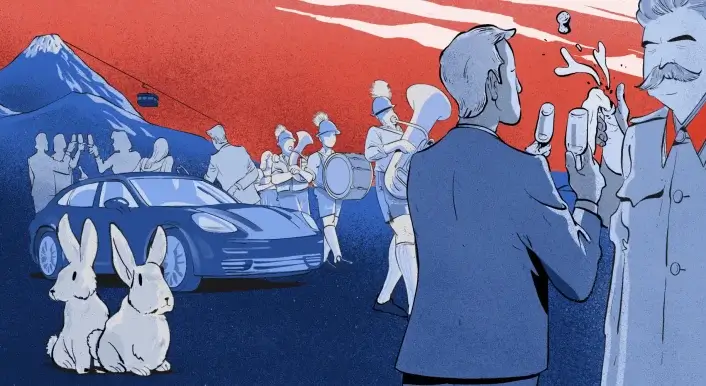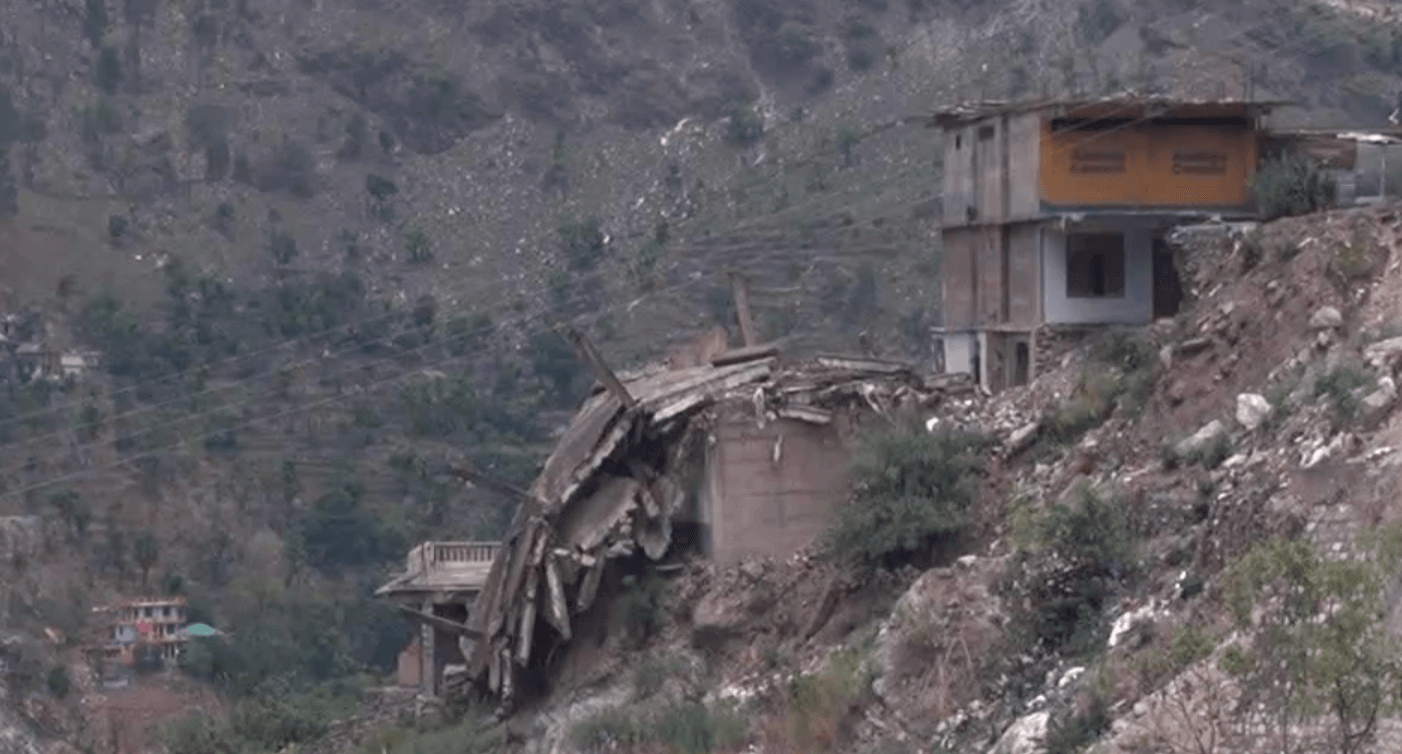von Stella Hesch, Gesa Steeger, Max Donheiser, Simon Wörpel
Inhalt
Chapter 1: The Consumers
Climate-neutral gas – your contribution to protecting the environment. Heat your house with gas and in so doing reduce your environmental impact – that’s the promise made by many German energy providers. Customers have the option of paying a few cents more per kilowatt hour for a ‘green gas’ tariff, and in return can turn up the heating guilt-free. But it’s an empty promise. German gas providers such as Hesse’s Entega and public utility companies such as those of Duisburg and Rostock are offering a gas solution that’s only green on paper. CORRECTIV’s analysis of the gas tariffs and products of a total of 116 German gas providers over the last 13 years has shown them to be anything but climate neutral.
The principle behind these so-called green gas tariffs is carbon offsetting, a type of carbon compensation. Greenhouse gas emissions produced in Germany, from central heating for example, are offset elsewhere, by protecting forests in Brazil or by building hydroelectric power plants in India for instance. Companies can then purchase these ‘saved’ emissions in the form of carbon credits in order to improve their carbon footprint.
Large-scale deception of consumers
However, our research has shown that this offsetting often does little to benefit the environment. In many cases the opposite is true: many carbon offsetting schemes are actually further damaging the climate – the development of gas-fired power stations for example. By purchasing credits from such power stations in India, China and Singapore, German energy providers can market their gas tariffs as climate-friendly while simultaneously propping up the fossil fuel industry.
This was revealed by CORRECTIV’s investigations into the carbon offsetting and use of carbon credits by 150 German gas providers and public utility companies between 2011 and 2024.
The analysis is based on the records of the two voluntary offsetting market leaders: Verra and Gold Standard. These two NGOs set global standards for the quality of carbon offsetting projects and carbon credits. They act as control bodies and guarantee that emissions are offset as promised. At least in theory. Their effectiveness is questionable. Verra in particular has been under public criticism for some time now.
The evaluation was closely supervised by scientists and experts from several research institutes including the New Climate Institute, Berkeley University, the Institute for Applied Ecology (Öko-Institut) and Environmental Action Germany (Deutsche Umwelthilfe, DUH).
The results? Over the past 13 years, 116 German gas providers have used carbon credits from climate protection projects which, according to scientific assessment, cannot provide plausible evidence that emissions have actually been reduced or offset. This applies to two thirds of the total 16 million credits analysed. 98 percent of these questionable carbon credits were issued by Verra. Flaws in the offsetting projects included examples such as a smaller area of forest being protected than stated, fewer emissions being offset than promised or the fact that the project could have been carried out without the income from the sale of carbon credits.
The real number of such “phantom credits” is probably far higher, according biologist and offsetting expert Jutta Kill. There are “hardly any offsetting projects on the market that can plausibly prove that CO2 emissions have been permanently reduced or saved,” she says. Other experts have expressed similar views to CORRECTIV. A preliminary publication by the ETH Zurich and the University of Cambridge concludes that only 12 percent of the carbon credits currently available on the market will lead to any “real reduction in emissions”.
And the damage caused by these carbon credits can be quantified in the case of German gas providers. Contrary to their promises, around 10 million tonnes of carbon emissions were, in all probability, not reduced or offset over the last 13 years. That is equivalent to the German state of Thuringia’s entire carbon emissions from coal, gas and other primary energy sources in 2020 alone.
In response to an enquiry from CORRECTIV, Verra issued the following statement: “As a non-profit organisation, Verra is committed to continuous innovation and draws on the latest and best scientific knowledge.” This knowledge determines their standards and methods and “ensures the highest level of integrity in climate projects”, they added.
Gold Standard explained that the organisation does not support offsetting claims at product level “if they are not consistent with the performance of the company as a whole”. Furthermore, Gold Standard has advocated “moving away from the concept of carbon offsetting, in order to ensure the credibility of claims and the responsible use of carbon credits” for several years, they claimed.
A dying industry fighting for survival
German gas providers’ green promises have misled customers – customers trying to do the right thing in the belief that their energy choice makes a difference, Monique Goyens, director of the European Consumer Organisation (BEUC) in Brussels, told CORRECTIV. “This is a dying industry fighting for survival and taking the population with it,” she said. It’s hindering genuine change and “that is unacceptable”.
This kind of greenwashing can damage the environment in more ways than one. A study by the University of Münster illustrates the effect that the perceived climate credentials of products can have on consumer behaviour. Many people see supporting carbon offsetting, via their gas provider for example, as a free ticket for “environmentally harmful behaviour”. The “mere idea of behaving in an environmentally friendly way” is enough to justify subsequent high carbon behaviour such as flying.
Natural gas cannot be completely offset
Many scientists emphasise how misleading it is to market gas as climate-neutral in this way. “Genuine climate protection can only be achieved by moving away from fossil gas,” says Claudia Kemfert, energy expert and environmental economist at the German Institute for Economic Research (Deutsches Institut für Wirtschaftsforschung, DIW). In her estimation, the promotion of ‘climate-neutral’ gas is primarily an attempt by the gas industry to “retain their fossil fuel business models for longer”.
The narrative of climate-friendly gas is being propagated by, among others, the powerful lobby group BDEW, which represents the interests of the German energy industry. A brochure for customers promises that even “conventional natural gas can be made climate-neutral: through carbon offsetting (…) The gas then receives certification and is available in ‘green gas tariffs’, for example”.
It’s a claim that Kemfert absolutely refutes. “There is no such thing as truly climate-neutral gas, even if carbon emissions are offset. It’s impossible for gas to be emission-free.” According to Kemfert, it is the consumers who are the victims here: “Customers are under the false impression that the gas they are using is less harmful to the climate.”
According to a study conducted by the German Institute for Economic Research (DIW) in 2022, natural gas consists primarily of methane, a greenhouse gas that is around 28 to 34 times more harmful to the climate than carbon dioxide over a 100-year time frame. According to the DIW study, large quantities of carbon dioxide and volatile methane emissions are released when natural gas is burnt. Methane may also be released while the gas is extracted or transported.
Further experts contacted by CORRECTIV expressed similar opinions. The main reason for this scepticism is the time lag between the release of emissions and the effect of the offsetting. According to the German Environment Agency (Umweltbundesamt, UBA), it can take several hundred thousand years to completely remove fossil gas emissions from the atmosphere. Offsetting can therefore only compensate for a fraction of these emissions, and only in the short term – and that’s only true for genuine carbon offsets. This limited effect is non-existent in the high proportion of phantom offsets that our research has exposed.
A look towards India shows the consequences that these false promises made by the German gas industry can have, not only on the climate and hoodwinked customers, but also on the local people who become involuntarily caught up in these offsetting projects.




